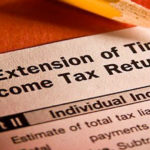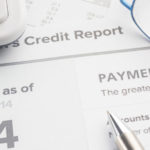More people today find it easy to invest on tax lien certificates than tax deeds. Especially for small and new investors who don’t have to spend thousands of dollars to start. Unlike investing in tax deeds where you need a bigger capital since you are practically buying the property. With tax lien certificates you only bid for the delinquent tax and subsequently purchased the delinquent or unpaid tax on the lien property. Tax lien certificates are sold during tax sales conducted by a county or municipality. Sales are usually held at least once a year. Counties with very large population hold tax sales quarterly or even monthly to collect enough money for their expenditures.
But as in any other investment, you need to know and learn a lot In order to invest properly. You need to exercise due diligence and have the time to spend researching properties to find out which best fit your needs. Here are the 5-Point Tax Lien Investing Checklist:
- Looking for the right place to Invest: There are a couple of questions you need to answer about tax lien investing: “Where is the best place to invest in tax liens” and, “What are the best states to invest in.” Different states, different laws. And be sure whether you’re looking for a high return for your investment or you want to own a property. If you don’t have much money then the best is investing in tax lien certificate. If you want to invest on a property then you are better off with a tax deed or redeemable deed. And you need to be practical. If you’re thousand of miles away from a state where you want to invest in tax lien, you need to find the state closest to you.
- Get the right Information: Once you know where you want to invest, you need to find out and get all the necessary information about the tax sales in that state or in that county.
- Evaluate the Properties: Study the list of properties that are in the tax sale and know the rules and procedures for the sale. You have to exercise due diligence on the tax sale properties. Be sure that any properties that you bid on are valued much more than what you bid ( for a deed or redeemable deed) or what the lien amount is (for a tax lien). You have to check the tax records to find out as much information about each property as you can and evaluate and determine the estimated value of each property that you plan to bid on.
- Get ready for the Tax Sale: Determine which properties you will bid on and make sure you know the exact schedule before the tax sale so that you can register early in order to be able to bid at the sale. For online tax sales, you have to deposit the money a few days before the sale for your bids to be counted. Be sure you have studied and understand all the terms of the sale and bidding procedures and you have completed all the necessary documents
- Bidding Time: After diligently doing all your homework , it’s time to show up and bid. If the sale is live make sure that you arrive early to get any updates of liens or deeds that have been removed from the list. Stay focus as things happen very fast at an auction. Have a bid sheet that lists all the properties in the sale, highlighting all those you bid for. Don’t go beyond the bid amount t you had pre-determined. Pay for your winning bids on time lest they may be re-bid and that may cause you to be banned from any future bidding. . Every state has different bidding procedure. In some states the interest rate is bid down, in others the price of the lien is bid up (they call that premium bid). Some tax lien states that bid premium don’t give it back to the investor when the lien redeems, some do, and some will give the premium back to the investor with interest on redemption.




